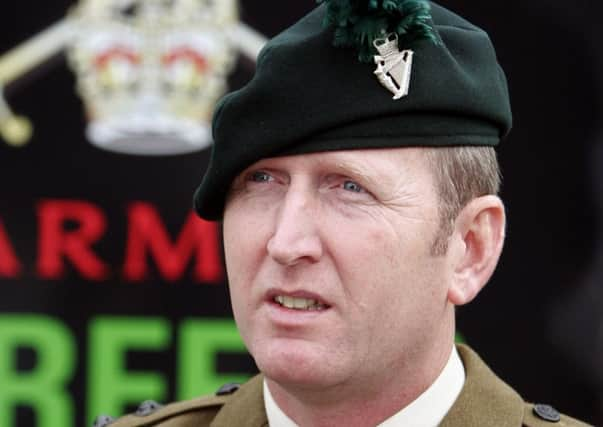Doug Beattie: Soldier arrests make it look like the criminal justice system is ignoring past terror


The latter contained the formal rules of engagement (RoE) and were supposed to offer guidelines on the use of the former.
The RoE supposedly addressed three basic questions associated with the split-second decisions troops had to make when faced with an option of opening fire: can you, could you and should you?
Advertisement
Hide AdAdvertisement
Hide AdThe first two questions are essentially legal dilemmas. Where would you stand in the eyes of the courts if your engaged ‘the enemy’?
The last question is much more related to how a soldier’s actions would be viewed in the court of public opinion.
And yet, in those early days of Operation BANNER, the subtleties and complexities of the Troubles were rarely, barely, explained to those being deployed.
By the time I became an instructor with the Northern Ireland Training Advisor Team (NITAT) in the early 90s things had improved significantly.
Advertisement
Hide AdAdvertisement
Hide AdMy role – alongside PSNI Officers, legal experts and explosive technicians - was to help prepare all major military units in preparation for ops Northern Ireland.
As much as anything we considered the political and the cultural, as well as the legal, not least the military’s powers to stop, search and arrest.
We also considered tactics and procedures, dealing with the public, the appropriate reactions to intelligence reports.
Then there were the computer-based judgmental shooting exercises with group and individual discussions surrounding each shot fired.
Advertisement
Hide AdAdvertisement
Hide AdIt was thorough, deliberate, measured and worked on the principle that the people were the prize. To defeat the IRA specifically, and terrorism in general, we needed to separate the trouble makers from the populace; try and offer up an alternative to the pessimism and fear increasingly ingrained in a violence-ridden society.
This sea change was recognition of the often overwhelming pressure young soldiers endured in those first months and years of the conflict; pressure which resulted in high-profile cases where actions were later closely scrutinised; cases such as the death of Joe McCann in 1972.
McCann was a local leader of the IRA, he was the RUC’s most wanted in Belfast and intelligence reports linked him to the murder of a number of soldiers and the attempted murder of RUC officers and Ulster Unionist MP John Taylor.
The decision by the Director of Public Prosecutions to direct the PSNI Legacy Investigations Branch to prepare a file on McCann’s death and not any of the numerous paramilitary killings in Northern Ireland gives the impression that the justice system is unbalanced in its treatment of legacy cases and is skewed towards examining the actions of the state while ignoring the actions of the paramilitaries and terrorists.
Advertisement
Hide AdAdvertisement
Hide AdIf this perecption of imbalance is wrong, we need an explanation as to how it is wrong.
Of course the Westminster government hasn’t helped.
Some 200 suspected terrorists – including Hyde Park bomber John Downey – received so-called comfort letters which effectively gave them immunity from prosecution.
Indeed, it has allowed some to openly confess to their crimes, including Kieran Conway who appeared on national television and admitted to playing a part in the murder of British soldiers, safe in the knowledge his words would have no consequence.
This is just one example of behaviour that has created a perception that in recent years Westminster ministers have desperately been trying to disentangle themselves from the past, leaving individual soldiers – who did previous ministers’ bidding – to face the fall out.
Advertisement
Hide AdAdvertisement
Hide AdI believe the MOD does have a responsibility for, and a duty of care to, the soldiers it deployed in the 70s and early 80s.
It is important that the MOD takes responsibility and in doing so protects the soldiers deployed on Operation BANNER.
• Doug Beattie is Ulster Unionist MLA for Upper Bann